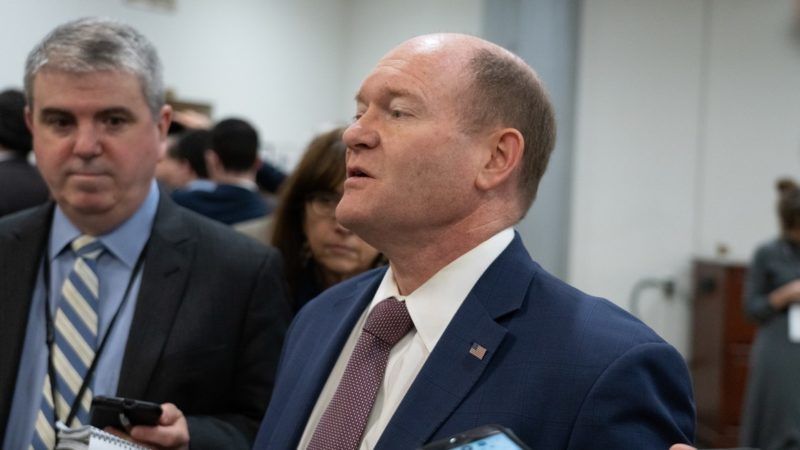A Pandemic Is Not a Chance To Flog Your Bad National Service Proposals
The federal government has done a terrible job managing the coronavirus. It doesn't deserve our labor.

The coronavirus pandemic has led lots of people—myself included—to loudly insist our pet policy proposals are the right way to react to the virus. This week the bingo ball hopper has, inexplicably, landed on "expand national service programs."
Sen. Chris Coons (D–Del.) and a bipartisan group of 35 lawmakers introduced a bill in late April to double the size of AmeriCorps from 75,000 people to 150,000 in a year—and then double that to 300,000 for years two and three. He also wants to increase the participants' "living allowance" to 175 percent of the federal poverty line, dramatically increasing the amount they'd get paid. (The poverty line currently rests at $12,760.)
Coons argues that AmeriCorps can help with the coronavirus response by using its workers for contact tracing. Andrea Mitchell interviewed him about his plan on MSNBC yesterday:
Here's a partial transcript of Coons' justification:
If you wait and think about it for a second, Andrea, contact tracing is a hard thing to do. You're calling someone to tell them they've been infected and ask them to share with you confidential information about where they live, where they work, where they've traveled, where they've shopped and then information about how to contact the people they've been around. This requires skill and it requires someone who is really connected to those communities that have been most heavily impacted by the pandemic, so that's often communities of color and communities where bilingual skills will be necessary.
New York Times columnist David Brooks doesn't think Coons' program goes far enough. In an op-ed titled "We Need National Service. Now," Brooks argues that AmeriCorps should expand into smaller organizations in rural parts of the country:
We Americans suck at regimentation and blindly following orders from the top down. But we're pretty good at local initiative, youthful dynamism and decentralized civic action. We need a Covid response that fits the kind of people we are. National service is an essential piece of that response.
My immediate response to this paragraph, sentence by sentence, was "Yes. Yes. Yes. Wait, what?" How does a need for customized local response justify the expansion of a federal make-work program?
More importantly: How do you feel about the level of "national service" the federal government has given us in its dealings with the coronavirus thus far? (If you're not sure, read Reason's documentation of the disastrous federal response here.)
Yes, it's true that we need contact tracing and that it should have happened quickly (with appropriate privacy protections). The operative word here is "quickly." It's May. The federal government has already dropped the ball on contact tracing, and it's already too late for "quickly" implementing anything by the feds. Nor does that training and deploying tens of thousands of people with no experience in this area sound very quick—especially in contrast with the work tech companies have been doing to safely (and anonymously) trace infection spread.
But Brooks and Coons always think it's time to expand these national service programs; COVID-19 is just their latest excuse. Unsurprisingly, former presidential candidate Pete Buttigieg, who called for national service in the Democratic primaries, is promoting Coons' bill.
By all means, direct federal money back to communities so they can manage the right responses to COVID-19 based on local needs. But nothing about this pandemic should give us high hopes for national management of such a program. The feds have done a terrible job of providing us with "national service." We absolutely should not be "unifying" behind them now.


Show Comments (57)